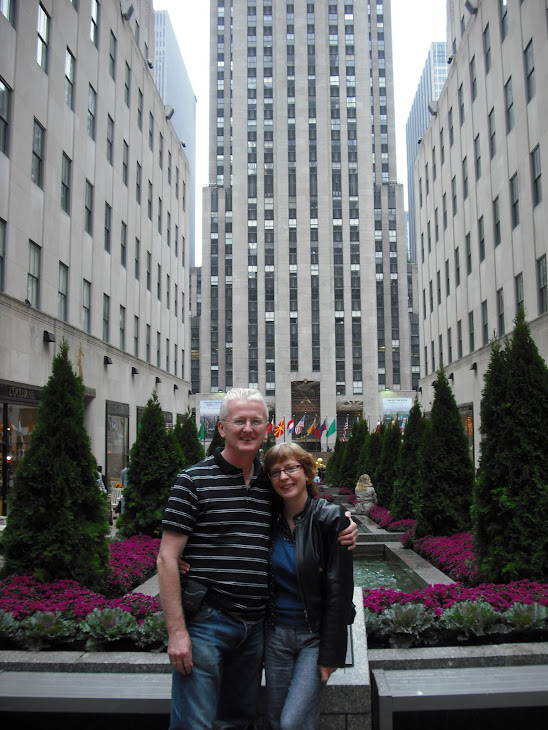We
recently attended a neurology appointment at the West Middlesex Hospital. Jenny
came with us. The ‘West Mid’, as most people call it, still has the power to
inspire fear in Roch and in me, on his behalf. Almost three years on from the
death there of our friend, Gerry McDonagh (see blog post passim 03/11/10), Roch’s anxiety
about being admitted to the West Mid persists. With each visit, we seek
reassurance. Has the standard of nursing care for MND patients improved?
Following Gerry's death, we had been told that an information leaflet about MND and
the needs of MND patients was being prepared for nursing staff and at each of
our visits we have enquired about this. The doctor we see there never has any answers.
Predictably,
after our appointment we were no wiser and no less anxious about possible admission.
Let me be clear - we are not talking about palliative care, as such. We are
talking about basic nursing care. Gerry did not need palliative care on
admission on a Friday, but he needed it by the end of the weekend because he
did not receive the proper nursing care when he was admitted.
Roch
calls it ‘Death by Hospital’.
As a
result of our visit, I have prepared a list of ‘Do’s’ and ‘Don’ts’ for
neurologists.
From
this, you will gain a pretty accurate picture of how our consultation went.
Don’t:
Interrupt
your patient
Tell
your MND patient that there are worse diseases to have.
Tell
your MND patient that it would be worse to have bulbar symptoms first.Tell your MND patient to ‘stay positive’.
Tell your MND patient that you might die before them.
Tell your MND patient that you have anxieties too.
Diminish your patient’s experience of their illness.
Tell your patient you have no power to change things.
Acknowledge their fears.
Tell them you will do what you can to change things.
Do what you can to change things. For instance:
- Find out how you can ensure your MND patient will not die needlessly, due to inadequate nursing care at your hospital.
- Take action to start to change things.
- Get back to your patient to let him know what you have done.
Following the appointment Roch entered into email correspondence with Dr. Pearce, Consultant Neurologist at the West Mid, who has now sent us a copy of the information leaflet around the care of MND patients, prepared for nursing staff. Apparently this leaflet has been in existence for the last two years. As the doctor we spoke to was unaware of its existence, I suggest that Dr. Pearce lose no time in sharing it with the rest of his team.
We are, on the whole, pleased with Dr. Pearce's speedy response and it has gone some way towards alleviating our fears although we remain anxious.
He also drew Roch's attention to the CMC database:
"There is now a national data base for patients with life-limiting conditions known as Coordinate My Care (CMC). You are eligible to join the registry (and I would urge you to do so) and this will alert care givers down to an ambulance level, so that all parties are informed, as much as possible, of your individual circumstances and preferences."
http://www.coordinatemycare.co.uk/
So we need to make sure Roch is registered on this database (and hope it functions as it is designed to do), that he is happy with his End of Life Directive and that the hospital and GP have copies of this on file. I can't say I'm filled with confidence.
I do know I have strong, supportive professionals on side, like Donna, our Hospice Nurse and Jenny, Roch's new PA but as his wife and main Carer I anticipate that it will be me in an emergency situation standing between the nursing and medical staff and my husband. Funny to put it like that, but that's how I see it at the moment - a 'them' and 'us' situation. That's not good. I clearly need more reassurance.
I do not want to be in a situation where a remark like "Wife claims husband has MND" appears on Roch's admission notes. True story.



















